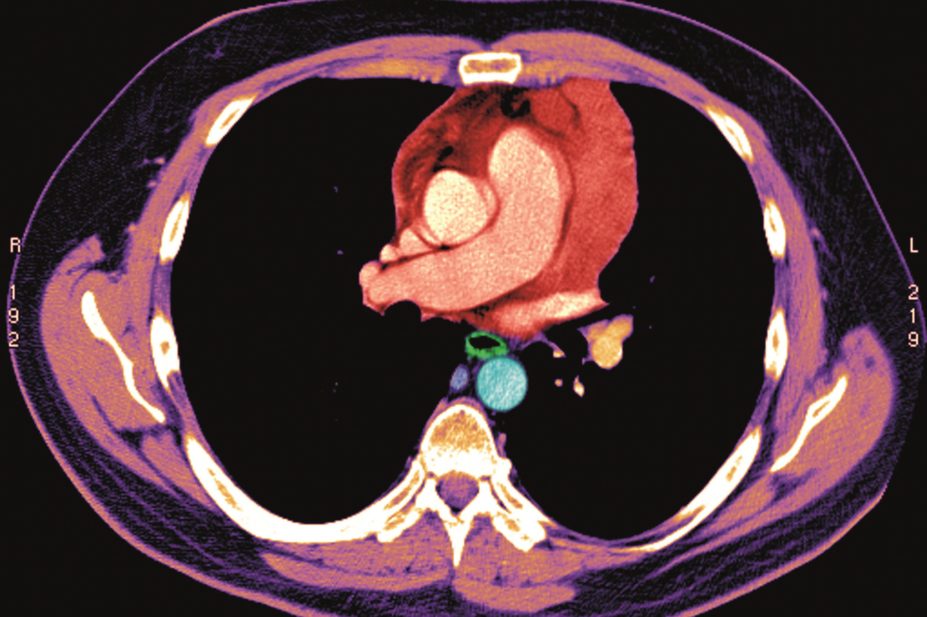
BSIP SA / Alamy Stock Photo
High doses of some non-steroidal anti-inflammatory drugs (NSAIDs) can double the risk of being admitted to hospital for heart failure, a study has found.
The research, published in The BMJ
[1]
(online, 28 September 2016), also found that the risk of heart failure varies between NSAIDs.
“This study serves as a reminder to doctors to consider carefully how they prescribe NSAIDs, and to patients that they should only take the lowest effective dose for the shortest possible time,” says Peter Weissberg, medical director at the British Heart Foundation.
Researchers analysed real-world data relating to more than 8 million patients in Europe and found that current use of any NSAID increased the risk of hospitalisation for heart failure by 19%.
When researchers analysed 27 individual NSAIDs they found that 9 NSAIDs were, to varying degrees, associated with a significantly increased risk of hospitalisation for heart failure when compared with past use of NSAIDs and that this risk was increased at higher doses.
Seven traditional NSAIDs were implicated — diclofenac (odds ratio [OR] 1.19), ibuprofen (OR 1.18), indomethacin (OR 1.51), ketorolac (OR 1.83), naproxen (OR 1.16), nimesulide (OR 1.18) and piroxicam (OR 1.27) – and two selective NSAIDs, etoricoxib (OR 1.51) and rofecoxib (OR 1.36).
At very high doses (defined as twice the defined daily dose), the risk of heart failure doubled for patients taking diclofenac, etoricoxib, indomethacin, piroxicam and rofecoxib. Only current use of celecoxib was not associated with an increased risk of heart failure compared with past use of NSAIDs.
The results strengthen the link between heart failure and NSAIDs, which have been associated with cardiovascular events for more than a decade. This class of drugs is commonly prescribed for relief from pain and inflammation, typically joint problems.
“This paper helps to quantify the risk with individual NSAID agents and assess the impact of dose regimen,” says Helen Williams, consultant cardiovascular pharmacist and spokesperson for the Royal Pharmaceutical Society.
“Current use of ibuprofen or naproxen was associated with a lower overall risk of hospitalisation due to heart failure compared to these more potent agents, indicating they may be a more suitable option for routine clinical use, which is reassuring as they are the preferred agents in most NHS organisations.”
Researchers analysed electronic health records from Italy, Germany, the UK and the Netherlands. They identified 92,163 admissions to hospital for heart failure and matched each of these cases with 100 control patients (n=8,246,403). On average, patients were aged 77 years and 76 years, respectively, and 45% were men.
Traditional NSAIDs, which inhibit both cyclo-oxygenase (COX) 1 and 2, have been used for decades but can cause gastrointestinal side effects. Selective NSAIDs that primarily inhibit COX2 were developed to minimise these side effects but were subsequently found to be associated with cardiovascular events, such as heart attack and heart failure. Later, it was found that traditional NSAIDs also increase the risk of cardiovascular events.
The researchers highlight that their results only relate to prescription NSAIDs and that over-the-counter (OTC) drugs will be used by younger patients for shorter periods of time and at lower doses. But they add that the results may apply when people are taking high doses or if there is any abuse of OTC NSAIDs. “Therefore, our findings could have large-scale consequences in public health and further research needs to assess the safety of over-the-counter NSAIDs under the conditions they are typically used,” the researchers say.
John Smith, chief executive of the Proprietary Association of Great Britain, which represents manufacturers of OTC medicines, points out that the study does not provide data on absolute risk, “therefore the probability of these people developing heart failure without the use of NSAIDs is unknown”.
He adds that “safety is of paramount importance to the OTC medicines industry” and recommends that if patients have any concerns about existing conditions they should talk to their pharmacist before taking any medicine to check for any potential drug interactions or health concerns.
References
[1] Arfè A, Scotti L, Varas-Lorenzo C et al. Non-steroidal anti-inflammatory drugs and risk of heart failure in four European countries: nested case-control study. The BMJ 2016;354:i4857. doi: 10.1136/bmj.i4857


